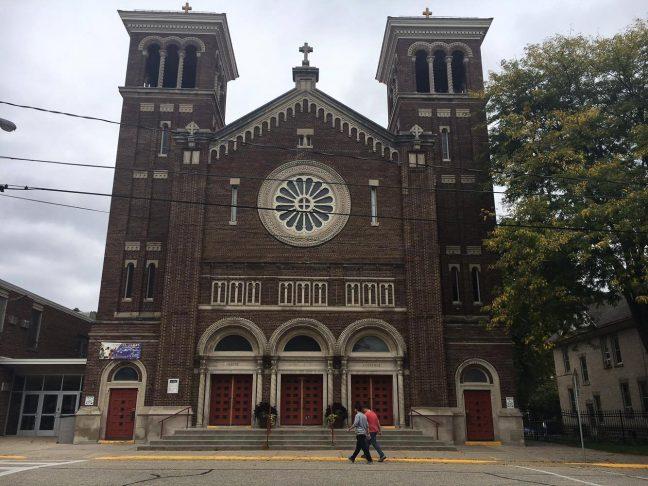Madison-based religious experts gathered to discuss the intersection between faith and politics at a Cap Times panel Thursday at High Noon Saloon.
Freedom From Religion Foundation Co-President Annie Laurie Gaylor said she does not believe faith and politics should mix because it leads to “terrorism and pure blood shed.” A leader has to uphold the constitution regardless of their faith, Gaylor said.
Most voters in the U.S. are not inclined to vote for an atheist president, which Gaylor said excludes atheists from the political process. Currently, almost a third of millennial and adult voters are atheists, which is “a lot of people to ignore,” Gaylor said.
Pastor David Smith of Faith Community Baptist Church said faith and religion should not be considered the same. While religion is about practice and devotion, Smith said, faith is more personal. He said people need to be careful about distinguishing between the two when it comes to the election.
“Whenever you’re voting you should base it off of your personal beliefs and faith, which may differ from your religion,” Smith said.
Masood Akhtar, entrepreneur and advisor to Madison’s Muslim community, said Islamophobia influences politics greatly, which is why it is important for the Muslim community to be more involved. When just one Muslim performs an act of terrorism, the whole community is blamed for it. Akhtar said this is a serious issue because Muslims comprise a large community and cannot be generalized this way.
As part of his campaign, Republican presidential nominee Donald Trump called for a ban on Muslim immigrants. Akhtar said this caused a lot of problems within the Muslim community, which has turned its back against Trump. But Trump’s comments also opened opportunities for dialogue among Muslims.
“Our politicians need to understand that we are a part of the community,” Akhtar said. “We will continue to live here, and we’re not going back home.”
R.D. McClenagan, training pastor of Door Creek Church, said having people support both Trump and former Secretary of State Hillary Clinton is a “great thing” because people need to challenge each other. McClenagan compared the election environment to the Church in that both allow people to come together and exchange ideas respectfully.
McClenagan said Christianity is built on grace, and he advocates for loving even those whom one disagrees with. He said this ideology should be applied even in politics.
When it comes to how religion impacts student voters, Pres House Co-Pastor Erica Liu said students tend to take on their family’s political views. University of Wisconsin is more liberal but still has political diversity, she said. Some students involved in the political process integrate it with their faith while others cannot bring the two together.
Liu said coexisting the way students do and coming to an agreement regardless of your faith would be a good way to integrate politics and religion. She said she agreed with McClenagan in that interacting with a person one disagrees with can make the political system much stronger.
“Whatever identity label makes you tense up, whoever that person is, that’s who you need to go eat dinner with,” Liu said. “We need to eat with the people we disagree with on a regular basis. That is a very powerful thing.”
Faith-based program aims to heal racial disparities in Dane County
Rabbi Laurie Zimmerman of Congregation Shaarei Shamayim said sometimes politics interact with religion in a way that pits one against the other. She said Trump targeted Jewish communities and pitted them against anti-Semitic communities, creating divides among people.
Zimmerman said people should condemn the kind of bigotry that Trump created. Regardless of faith, religion and political standing the important aspect is that people stand together.
“We should be allies and actively oppose bigotry that is being spewed,” Zimmerman said. “It could be a Trump rally or other issues that divide our communities, and it’s important that we are each other’s allies.”
Doha Awad contributed to reporting for this article.













